Posts in Category: Pet Health & Wellness
Tummy in Knots? Recognizing and Preventing Bloat in Dogs
 Few conditions can kill a dog as quickly as bloat. Although many pet owners are unaware of it, bloat in dogs is one of the most serious, and potentially deadly, pet emergencies. Understanding the signs of bloat, as well as your emergency options, are crucial in protecting your dog from this dangerous affliction.
Few conditions can kill a dog as quickly as bloat. Although many pet owners are unaware of it, bloat in dogs is one of the most serious, and potentially deadly, pet emergencies. Understanding the signs of bloat, as well as your emergency options, are crucial in protecting your dog from this dangerous affliction.
Understanding Bloat in Dogs
Bloat, also known as gastric dilation volvulus (GDV), occurs when gas and fluid cause the stomach to distend. In some dogs, this distention can cause the stomach to twist along its axis (also called torsion), cutting itself off from the esophagus and duodenum. Continue…
Don’t Forget The Little Guys: Pocket Pet Wellness Care
 It’s been said that good things come in small packages, and pocket pet owners couldn’t agree more.
It’s been said that good things come in small packages, and pocket pet owners couldn’t agree more.
Rabbits, Guinea pigs, gerbils, ferrets, lizards, and other small animals have been steadily increasing in popularity as pets for children and families. Because they are smaller and seem easier to care for than traditional family pets such as dogs and cats, many pet owners don’t realize that their pocket pet needs routine veterinary care, too.
Why Pocket Pet Wellness Care Is Important
The truth is, small and exotic pets derive all of the same benefits from regular checkups as their canine and feline counterparts. Along with making sure they’re in good health, check-ups for pocket pet wellness is an opportunity to take care of cosmetic maintenance issues that are not possible to do at home. Continue…
Is My Cat Normal? —The Truth About Hairballs
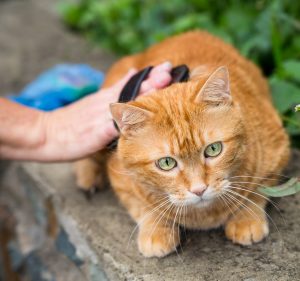 Hairballs are an unfortunate part of life for most cat owners. That low, hacking sound you can hear from anywhere in the house is the telltale sign that kitty is about to deposit hairballs in the least convenient place possible.
Hairballs are an unfortunate part of life for most cat owners. That low, hacking sound you can hear from anywhere in the house is the telltale sign that kitty is about to deposit hairballs in the least convenient place possible.
While it’s easy to assume that coughing or vomiting in cats is caused by a hairball, this isn’t always the case. Frequent coughing or vomiting in cats is not normal, and may indicate an underlying health problem.
Hairballs 101
Hairballs are the result of undigested hair left over from our cats’ fastidious grooming habits. Hairballs (also known by their scientific name “trichobezoars”) are not actually ball shaped; rather they are cylindrical, taking the shape of the cat’s esophagus as they are regurgitated. No cat is immune to hairballs, but longhaired varieties are certainly more prone. Continue…
Calm, Cool, And Collected: Tips For Getting Your Cat To The Vet
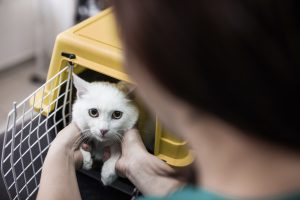 Taking your cat to the vet is probably low on your list of enjoyable activities. Between the struggle to get kitty into the carrier, the car ride, and the shenanigans that may ensue once you get your cat up on the examination table, getting kitty to the clinic can be quite an ordeal.
Taking your cat to the vet is probably low on your list of enjoyable activities. Between the struggle to get kitty into the carrier, the car ride, and the shenanigans that may ensue once you get your cat up on the examination table, getting kitty to the clinic can be quite an ordeal.
Although cats are the most popular pets in the U.S., they visit the veterinarian far less frequently than their canine counterparts. Due in part to the troubles many cat owners face when it’s time to take kitty to the clinic, it’s estimated that a third of pet cats did not visit the veterinarian for any reason last year. Continue…
Cancer In Pets: Fighting A Formidable Foe
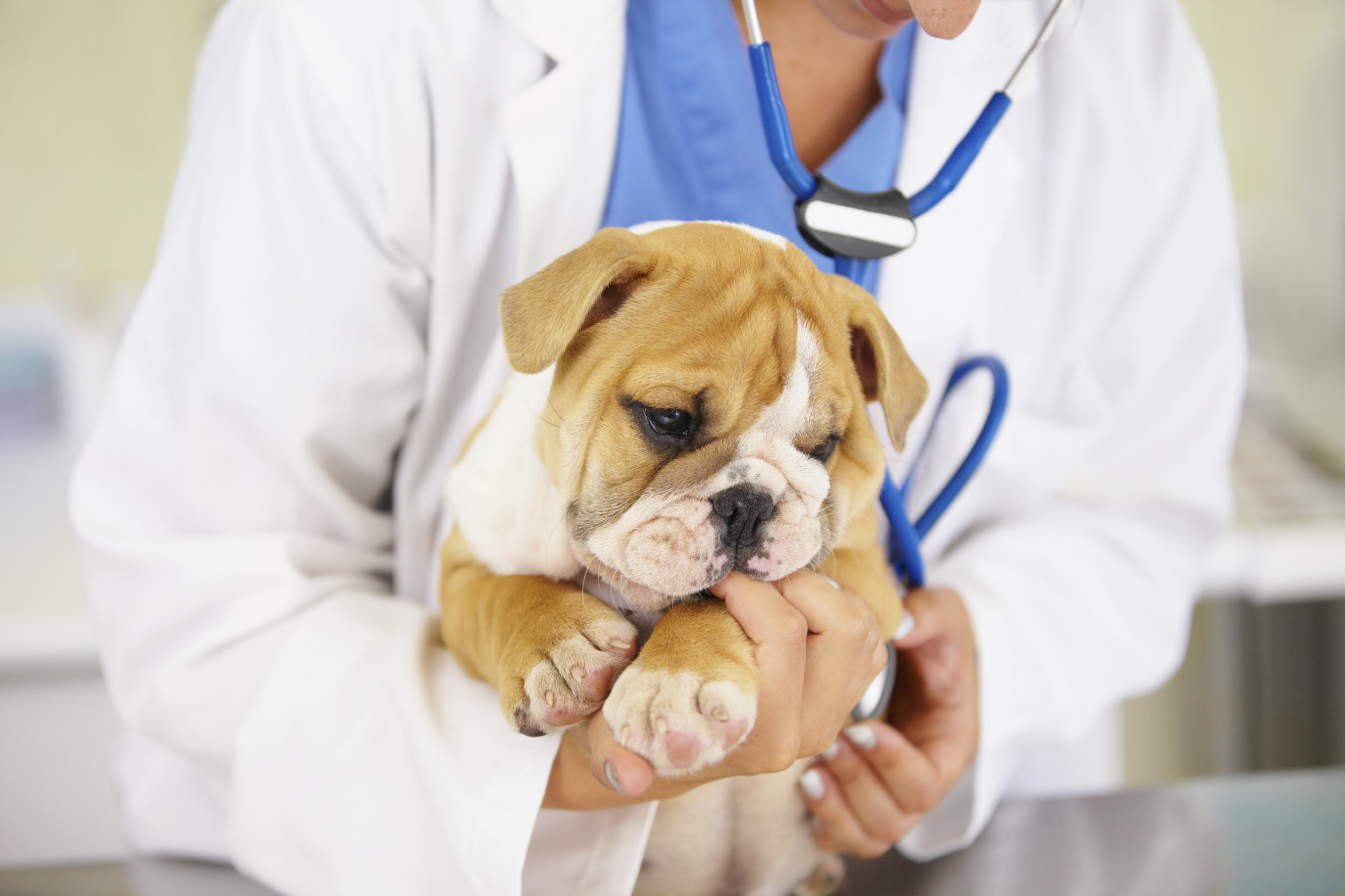
A diagnosis of cancer in a beloved cat or dog can be absolutely devastating. Unfortunately, with pets living longer than ever, cancer in pets becoming increasingly common, especially among seniors. Cancer remains one of the most common causes of death in adult and senior dogs and cats.
As of yet, there is no cure for cancer in pets, but with early detection and a commitment to preventive care, we can give our pets the best chance at a long and happy life.
Signs Of Cancer In Pets
Understanding the early signs of cancer in pets is vitally important to catching and treating the illness before it becomes more difficult and costly to treat. Give us call if you notice any of the following symptoms in your pet: Continue…
The Choice Is Clear: The Advantages Of Laparoscopic Spaying
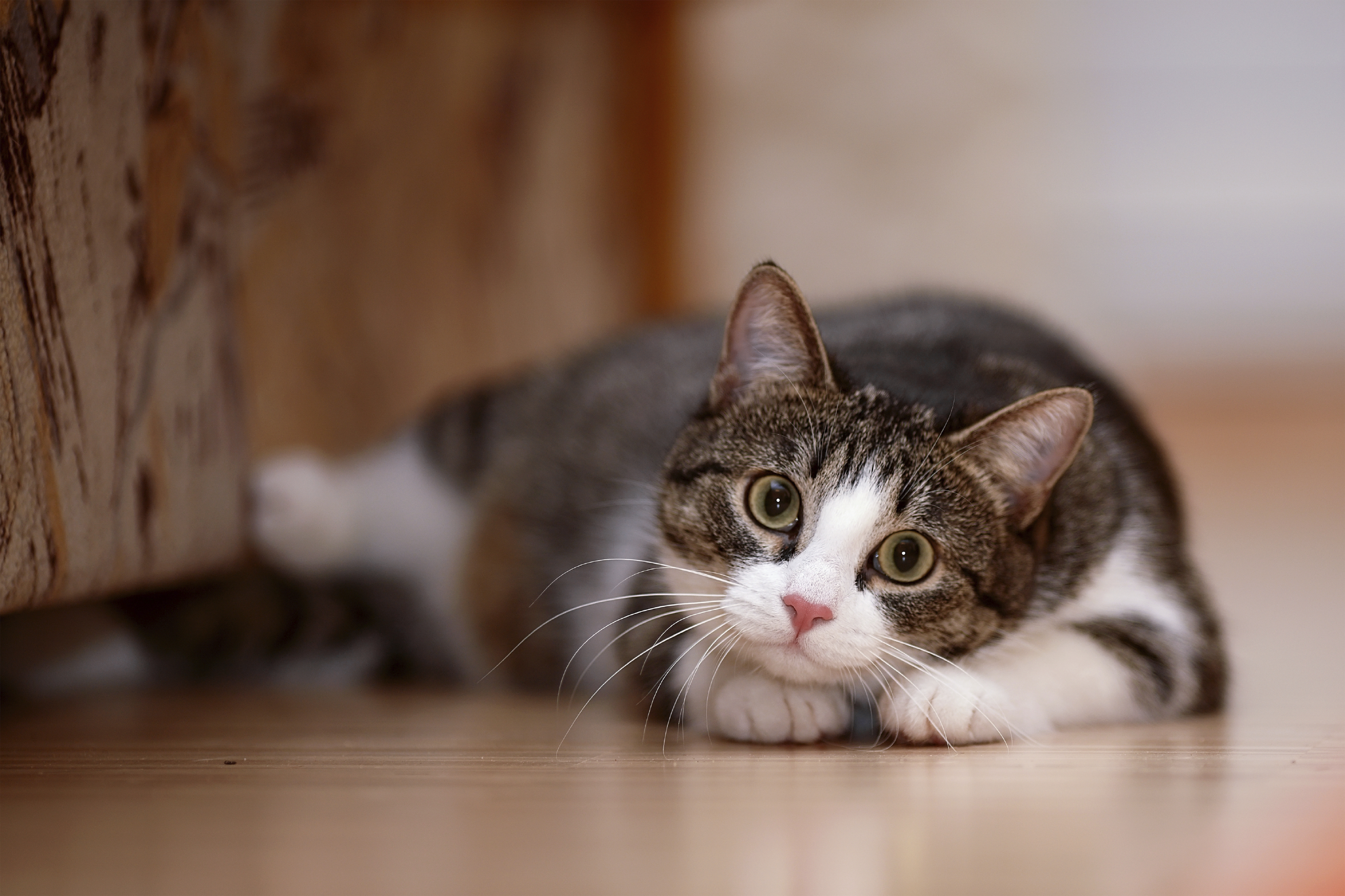
Each year in the United States, 83% of pet dogs and 91% of pet cats are spayed or neutered. Having your pet “fixed” has many advantages; besides reducing pet overpopulation, spaying and neutering can reduce the risk of certain cancers and ameliorate behavioral problems in many cases.
While both spaying and neutering are surgical procedures, neutering is relatively simple and straightforward. A traditional spay, however, where the entire reproductive system is removed from the body through an incision in the abdomen, is considered major abdominal surgery.
Traditional spay surgery remained relatively unchanged for decades, until now. Laparoscopic surgery has changed everything in the world of veterinary medicine, and we are thrilled to share this exciting information with our readers and clients. Continue…
Seasonal Allergies In Pets

Like humans, pets can suffer from seasonal allergies, Many pets experience this yearly problem. By paying attention to your pet’s symptoms and taking action quickly, it’s possible to get a handle on spring allergies in pets.
Continue…Flying The Furry Skies: Preparing For A Pet Health Certificate
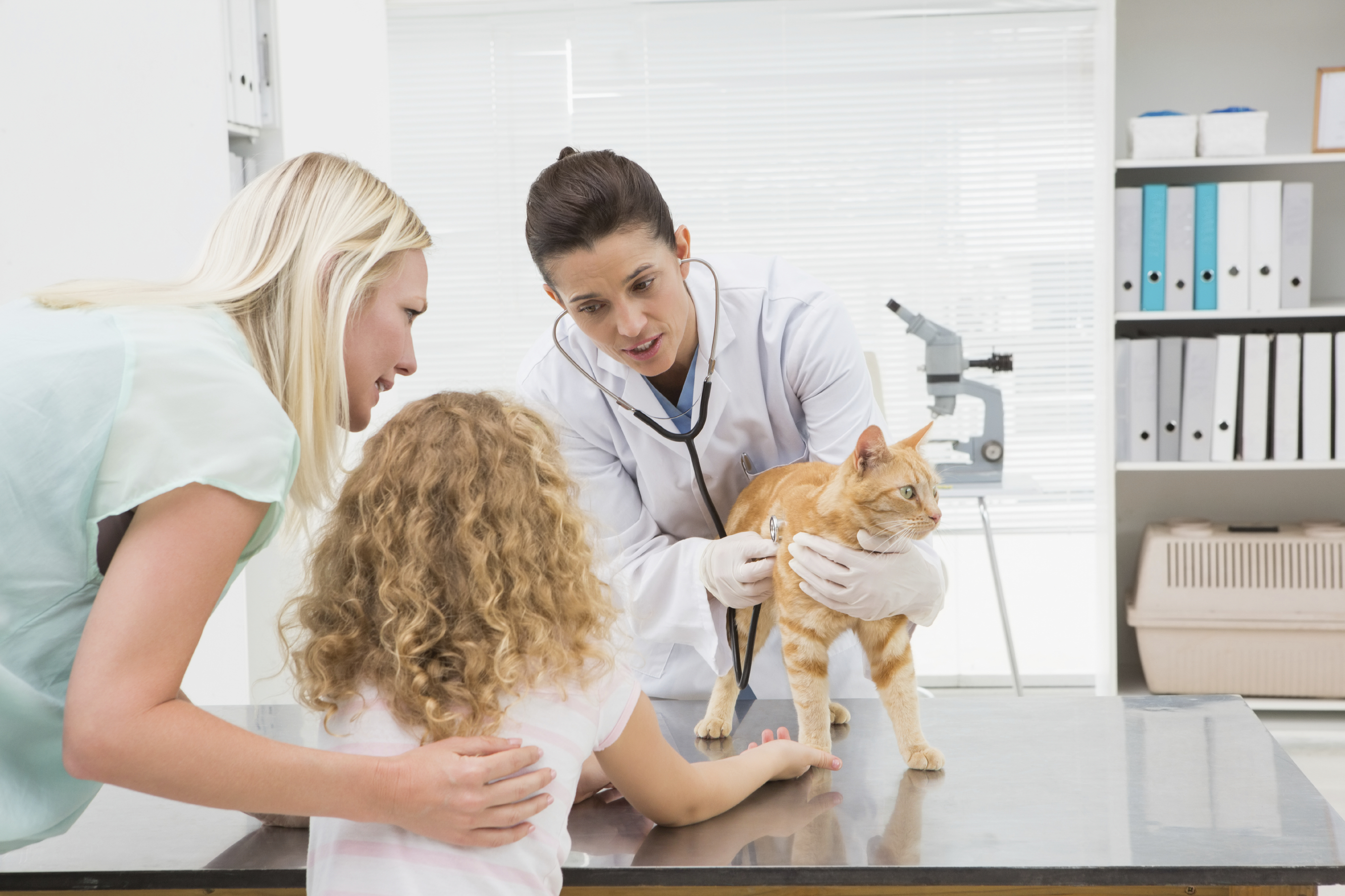 Traveling with your pet adds a special dimension to seeing new places and takes the worry out of how your best friend will fare while you are away. Unfortunately, traveling abroad with your pet isn’t as easy as crossing our state lines.
Traveling with your pet adds a special dimension to seeing new places and takes the worry out of how your best friend will fare while you are away. Unfortunately, traveling abroad with your pet isn’t as easy as crossing our state lines.
Many countries, and even airlines, have strict requirements when it comes to traveling with pets. Thankfully, your team at Lone Tree Veterinary Medical Center is here to help you fulfill these requirements as efficiently and thoroughly as possible. Continue…
Pet Socialization: Starting Off On The Right Paw
 When we think about what it means to raise a happy, healthy dog or cat, some things immediately come to mind: a nutritious diet, regular wellness care, vaccinations, and daily exercise.
When we think about what it means to raise a happy, healthy dog or cat, some things immediately come to mind: a nutritious diet, regular wellness care, vaccinations, and daily exercise.
Few pet owners think of socialization as a vital aspect of pet ownership, but the truth is, proper pet socialization is the backbone of your companion animal’s emotional health and physical safety.
What Is Pet Socialization?
Pet socialization is the process by which your pet learns how to be a part of human society. Some of your pet’s socialization will happen naturally as you move through daily life together, but it’s important to make sure that he or she is exposed to a variety of people, places, animals, noises, and smells early on in life. Continue…
A Spotlight On Feline Illness: How To Tell If Your Cat Is Sick
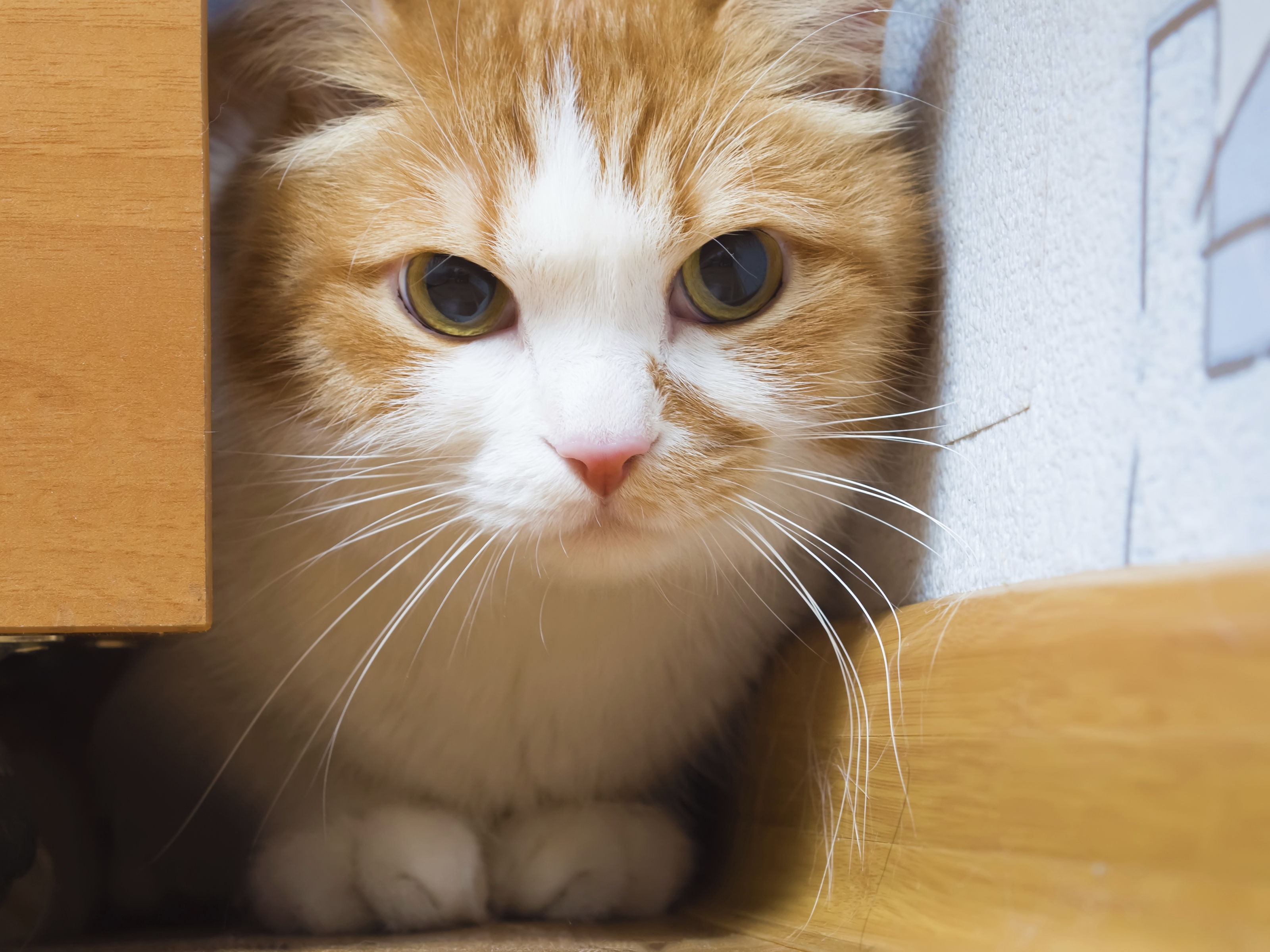 Most cat owners are aware of their cat’s love of hiding…boxes, paper bags, cupboards, under the bed; it seems that no place is off limits to a curious feline. For their survival in the wild, cats have also evolved to hide signs of illness and injury from other animals. Unfortunately for modern cats, those “other animals” are often their human companions.
Most cat owners are aware of their cat’s love of hiding…boxes, paper bags, cupboards, under the bed; it seems that no place is off limits to a curious feline. For their survival in the wild, cats have also evolved to hide signs of illness and injury from other animals. Unfortunately for modern cats, those “other animals” are often their human companions.
Because cats are so stoic when it comes to illness, and often don’t display obvious signs that something is wrong until the condition has become advanced, it’s up to us cat owners to do the detective work necessary in order to figure out if our cat is sick. Continue…



